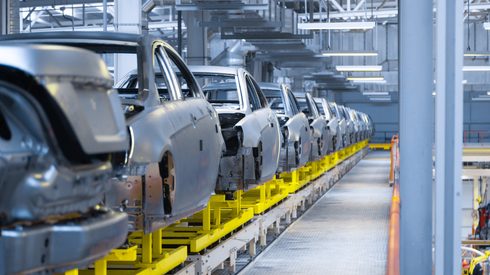The original consultation period was due to end on Thursday February 25, 2021, and responses so far have confirmed an appetite for a third-party price assessment for ferro-niobium. The two-week extension will allow time for further market feedback on the specifications, which have been revised in line with the initial responses.
Fastmarkets has revised its proposal to introduce a 63-67% niobium (Nb) content, rather than 60-70% as previously suggested. The proposal to introduce a 0.15% max phosphorus (P) content has also been revised to 0.20% max, in line with market feedback.
Fastmarkets’ specifications are intended to be wide enough to incorporate as much spot market activity as possible, while also being narrow enough so as to reflect a mainstream, tradeable range that reflects changing market trends and captures price moves.
Following the initial feedback, Fastmarkets has amended the proposed specification as follows, with the amendments in italics:
Assessment: Ferro-niobium 63-67%, delivered consumer works Europe, duty paid, $/kg Nb
Quality: 10-50mm lump. Nb 63-67%, C 0.2% max, Si 3.0% max, Al 1-2%, S 0.15% max, P 0.20% max, Ta 0.5% max
Quantity: Minimum 5-tonne lots
Location: Delivered consumer works Europe
Unit: USD per kg Nb
Payment terms: Cash. Other payment terms normalized
Publication: Weekly, Wednesday 2-3pm London time
Notes: Packaged in 250kg drums or one-tonne big bags
The introduction of the price will expand Fastmarkets’ current price coverage of the ferro-alloys markets.
Over the past few years, steel mills have been showing more interest in purchasing ferro-niobium following China’s revised rebar policy, which came into effect on November 1, 2018, and resulted in vanadium prices soaring to multi-year highs. The policy requires Chinese steel mills to eliminate the original 335 megapascals (MPa) tensile strength rebar and start producing 600MPa tensile strength rebar, which has better earthquake resistance.
Both ferro-vanadium and ferro-niobium are used in the production of steel rebar and can be used interchangeably to meet the required tensile strength in some steel products.
The extended consultation period for this price assessment will end on March 11, 2021. Subject to feedback, the new price will be launched on March 17, 2021.
To provide feedback on this proposal or if you would like to provide price information by becoming a data submitter to this price, please contact Ewa Manthey by email at: pricing@fastmarkets.com. Please add the subject heading ‘FAO: Ewa Manthey, re: ferro-niobium delivered consumer works Europe duty paid price.’
To see all Fastmarkets’ pricing methodology and specification documents go to https://www.fastmarkets.com/about-us/methodology
In 2020, Fastmarkets carried out a consultation on the launch of this price, which showed there was market participant support for the proposal, however, the launch was postponed after liquidity in the spot market thinned substantially because of weakening demand and global uncertainty amid the global Covid-19 outbreak.






